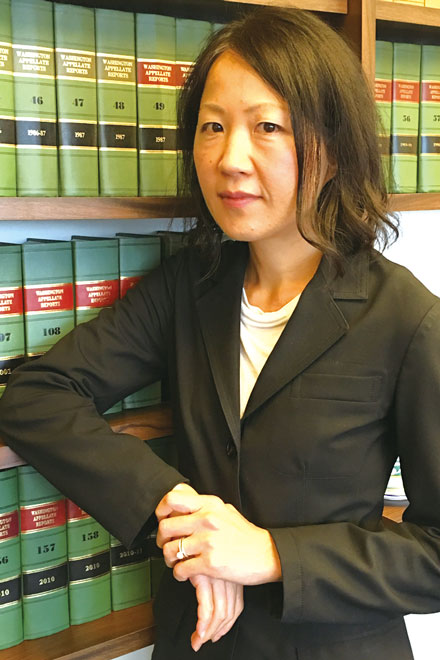By Nick Turner
For The North American Post
As a journalist—a journalism student, I should say—I interview people almost every day. My job is to tell stories about the places I go and the people I meet, and to do so in a respectful but honest way. There are good interviews, wherein the subject gives me everything I need and much more, and there are bad interviews, in which my questions are ignored or evaded and I walk away with nothing. There are short interviews where I know what I need and I get it quickly, and there are long interviews in which I’m bombarded with endless dribble and I end up going to class late. And then there are interviews that turn into conversations: these are my favorite kind.
It was a few weeks ago on a breezy afternoon that I met Masako Kanazawa. My editor introduced me to her through email, I sent her a message asking if she would like to meet, and we got coffee near the busy part of downtown a few days later. We spoke for about an hour—most interviews last 15 minutes—and at the end of our conversation, somehow, I ended up having a better grasp of my own story, not hers.
Ms. Kanazawa is a commissioner with the Washington state court of appeals. She was born in Osaka and has three younger brothers. She moved to the United States to attend community college before transferring a year and a half later to University of Washington, where she studied political science and Spanish. She spent her post-graduate education in the Seattle University School of Law where she met Lorraine Bannai, a professor of lawyering skills and a prominent figure in the Seattle Nikkei community. She’s been married since 2007 and frequently travels home to see her family.
Ms. Kanazawa was born to Korean parents. Her father was a doctor who established his own private practice in their community. He even became the primary medical provider for the local police department. In spite of this, some of his customers, neighbors and other community members, used racial slurs and treated him poorly. Ms. Kanazawa witnessed this prejudice in her classes as well.
“That was a big shock to me,” she said. “It’s very subtle.”
College for Ms. Kanazawa was trial by fire. At least, the first few years at community college seem so. She learned English in Japan, well enough that her test scores wouldn’t allow her to enroll in ESL (English Second Language) classes. This meant she was sitting in class alongside native English speakers. When students were paired up to review each other’s papers, Kanazawa hesitated to present her work.
“I didn’t speak up much because I was afraid,” she said. “I thought I was stupid.”
I think most bilingual people can relate to this. I know I can. And, like most bilingual people, Ms. Kanazawa realized one day, when she was reading her classmate’s paper, that native speakers can be bad at English, too.
“I just needed to be comfortable speaking up.”
And so she has: Ms. Kanazawa has been working in the state court of appeal for the last three years. Before that she worked in the Attorney General’s office for 11 years. She recently became a member of the Asian Bar Association and acts as a judge in moot courts for students at UW and Seattle U.
“My background, I hope, helps me do what I do,” Kanazawa said.
She told me that Fred Korematsu, the plaintiff in a famous case that vilified the United States for authorizing the internment of Japanese Americans on the West Coast during the onset of World War II, is part of the reason she became interested in law and eventually pursued a career in it.
“I understand that sometimes you feel intimidated—the sudden looks or impatient attitudes,” Kanazawa said, describing the way non-native speakers are often treated. “I would never do that. I won’t see people through that lens.”
“The judiciary should be a reflection of the community it serves,” she said. “I hope that seeing me in the judge’s robe makes some people more comfortable.”







